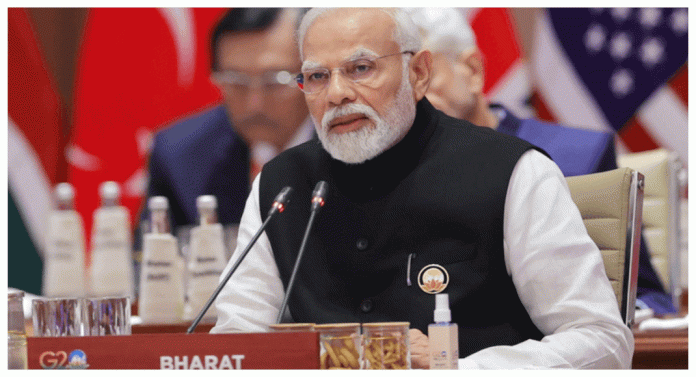PM Narendra Modi followed up on India’s success at the G20 by immediately renewing his pitch for India’s admission to the veto-wielding United Nations Security Council (UNSC). He pointed out the four-fold jump in UN membership since it was set up 80 years ago and stated that “The world has changed a lot in every aspect. Be it transport, communication, health and education, every sector has been transformed. These new realities should reflect in our new global structure.”
At the ‘One Future’ session of the G20 Summit, PM Modi also mentioned that “It is necessary that global bodies reflect today’s realities to lead the world towards a better future.” He highlighted his push for a human-centric vision instead of GDP-centric approach, and India’s willingness to share data of its lunar mission with everyone in the interest of humanity.
The Delhi declaration feat is expected to boost India’s UNSC bid. India’s claim for a permanent seat on the UN Security Council goes back decades, and has been consistently endorsed by other veto-armed countries like the US, the UK and France. India’s rising geopolitical stock as evidenced by its success in pulling off a consensus declaration at the G20 meeting, has raised the stakes for China, who has been blocking India’s entry into the Nuclear Suppliers Group.
Referring to the inclusion of the African Union in G20, Modi said, “similarly, we also need to expand the mandate of multilateral development banks. Our decisions in this direction should be immediate and effective.” He also noted that cyber security and crypto currencies are among the burning issues affecting the present and future of the world, and suggested that global leaders should reflect on the issue. He further stated that the world needs to go beyond the concept of “global village” to make “global family” a reality, calling for a future in which not only the interests of the countries are aligned but also their hearts.

